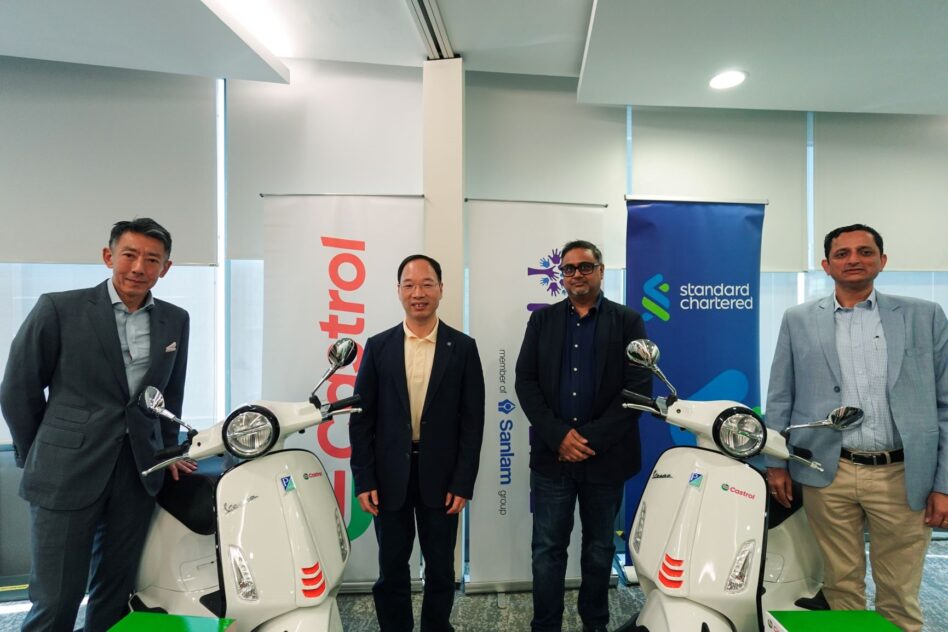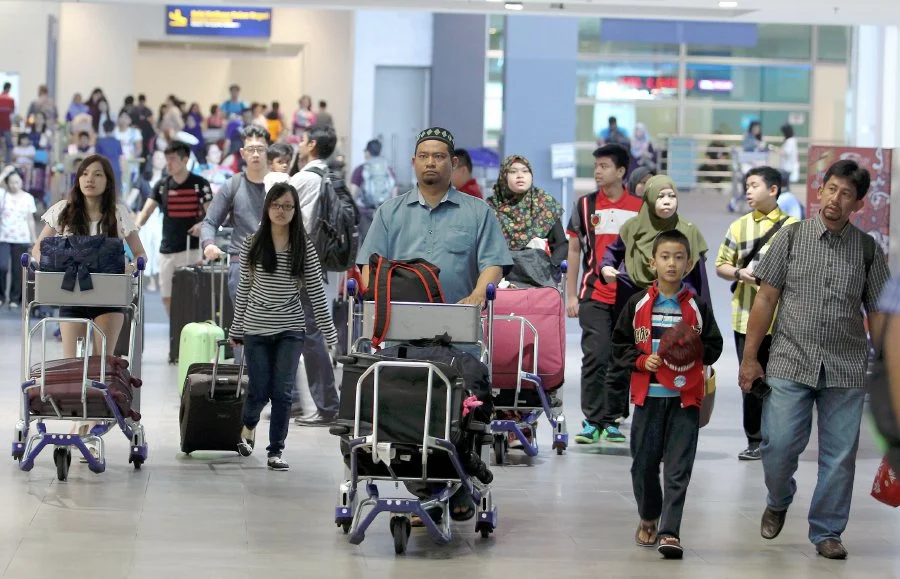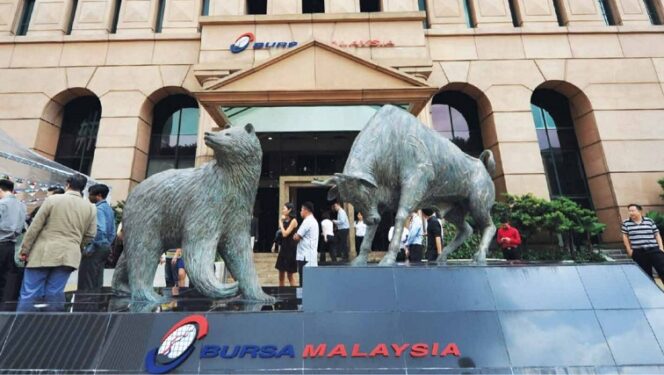By Jason Loh
THE cooperative movement should be inculcated and promoted in the urban areas as part of the measures to contain inflation and introduce more choice and intensify competition.
In fact, Prime Minister Tan Sri Muhyiddin Yassin himself had precisely made the suggestion that the cooperative movement can help tackle rising cost of living.
With Government support, cooperatives can be a dominant force in the supply chain and ensure prices are stable and low over the long-term. This is in line with the Government’s Prihatin (compassionate and empathetic) approach to the economic challenges the country’s facing.
The cooperative movement can be described as not-for-profit “people-centred enterprises owned, controlled and run by and for their members to realise their common economic, social, and cultural needs and aspirations.
Cooperatives bring people together in a democratic and equal way” (International Co-operative Alliance). In Malaysia, the cooperative movement comes under the purview of the Ministry of Entrepreneur Development & Cooperative (Medac) helmed by Minister Datuk Sri Dr Haji Wan Junaidi Tuanku Jaafar. The agency responsible is the Malaysian Co-operative Societies Commission (SKM).
Relevant legislation are the Co-operative Societies Act 1993 (Amendment, 2007) – the Cooperatives (Amendment) Bill 2020 passed its first reading in Aug 2020 – alongside the Malaysian Co-operative Societies Commission (Amendment) Act 2014.
The structure of a cooperative is different from that of a company based on equity or shareholding (either private limited or public via listing on the stock exchange or over the counter, i.e., without intermediary). A cooperative is guaranteed by cash contributions from members, loans and government grants.
As of 2020, there were some 14,625 primary cooperatives with 6.1 million members nationwide.
How to ensure that the cooperative movement increases it impact on the nation and economy?
One of the ways is to align the cooperative movement with existing socio-economic measures.
On Jan 31, the PM officially launched the 5MY programme designed to eradicate urban poverty and improving the social safety net system among the urban poor that are particularly concentrated in the Federal Territory of Kuala Lumpur.
5MY refers to MYJobs @ Wilayah, MYGrocer @ Wilayah, MYSchoolBus @ Wilayah, MYMedic @ Wilayah, and MYFood @ Wilayah initiatives that were already introduced last year. These refer, respectively, to the provision of:
- employment opportunities covering several sectors and industries – with 3,259 jobs as of Jan 2021;
- daily necessities that are cheaper by up to 20% than goods sold at public markets via trucks which have roamed in 30 low-cost housing areas;
- free bus service benefitting 9,704 schoolchildren from 67 low-cost housing areas – with participation by 94 school bus operators;
- mobile clinic services to urban dwellers at low-cost housing areas; and
- food baskets for the urban poor that have benefitted some 32,000 households;
In addition, the PM also launched MyBeras@Wilayah which aims to distribute 5,750 bags of rice for free every week to residents who are from the B40 group in Kuala Lumpur, Putrajaya and Labuan.
All of these commendable initiatives could be strengthened, reinforced and taken over by the cooperative movement in the medium- to long-term whilst at the same time relieving the government of direct financial burden.
In fact, back in the 1970s when Singapore was also exposed to the “stagflation” (a conflation of words referring to stagnant growth accompanied by high inflation) episode caused by the deliberate shortfall in oil production as a matter of policy by the Organisation of Arab Petroleum Exporting Countries (OAPEC) in response to the Yom Kippur War (1973), the National Trade Union Congress (NTUC) was tasked by then Finance Minister Goh Keng Swee to address the challenge and, thus, NTUC FairPrice was born.
In what’s a parallel or analogy albeit as precedent, NTUC also established NTUC Income (Insurance Cooperative Commonwealth Enterprise Ltd.) to provide low-income workers with affordable premium insurance coverage. In addition, NTUC launched a transport cooperative, Comfort (Cooperative Commonwealth for Transport Ltd. – now known as ComfortDelGro), to provide a mini-bus service for schoolchildren as well as a taxi service for the public.
Whilst there’s no possibility of us ever returning to the stagflation of the 1970s, rising cost of living continues to be a policy challenge.
Now with the establishment by SKM of the secondary cooperative Wholesale and Retail Cooperative Union (Akrab), the cooperative movement in Malaysia has the potential to revolutionise the way markets works.
In addition, other policy measures to enhance the role and function of the cooperative movement in Malaysia – to promote social and socio-economic welfare of the rakyat, particularly the B40 and lower M40 groups could be as follows:
1. To increase the allocation for the cooperative movement under future budgets. Under Budget 2021, the cooperative movement was only allocated with a sum of RM36.5 mil – whereby RM6.5 mil was earmarked for the development of cooperative businesses and RM30 million was for financing the cooperative revolving capital fund.
Much more should be allocated to enable and empower cooperatives to venture into new business frontiers such as financial technology (fintech), halal products, logistic and agriculture, and even enhance its provision of credit services – to micro and small-and-medium sized enterprises (MSMEs).
2. The use of electronic or digital “notes”/“bills” for direct circulation within the industrial and business community should also be promoted within the cooperative movement circles.
In an EMIR Research article, “Unprecedented measures needed by industries & businesses at this time”, it’s proposed these notes/bills would serve as “alternative currency”, albeit artificial, and is, therefore, an effective medium of exchange and barter-like transactions, and would be a direct impetus in the creation of more credit in the economy.
As alternative currency but in the form of notes/bills, there’s the added advantage of invoice factor discounting – whereby the invoice (receivable) for goods can be sold to a third party which will then assume responsibility for the outstanding payment.
Use of such notes/bills are non-inflationary (whilst enhancing circulation of credit) and can be considered as off-budget liability on the part of the government when it comes to channelling capital to the cooperative movement for such purposes.
3. More allocation for the expansion of the e-commerce business for cooperative retailers involved in the 100 Basic Goods Supply programme (BA100). This will further boost digitalisation efforts and ensure the cooperative movement is well-integrated into the low-touch economy.
4. National Co-operative Policy (2011-2020) should be updated and expanded for the next ten years to ensure an eco-system where the cooperative movement can further thrive and flourish as well as boosting their contribution to the GDP from the current 2% to 6%, for example.
5. National Entrepreneurship Policy (2030) to be accelerated in relation to social entrepreneurship – with Angkasa (Angkatan Koperasi Kebangsaan Malaysia Berhad), at the forefront as mentor and model – with implications on employment and aggregate demand.
There can be a cooperative revolution in the making and the cooperative movement, therefore, should continuously be a part of the policy radar of this government. – Feb 15, 2021
Jason Loh Seong Wei is head of Social, Law & Human Rights at EMIR Research, an independent think tank focused on strategic policy recommendations based on rigorous research.
The views expressed are solely of the author and do not necessarily reflect those of Focus Malaysia.










